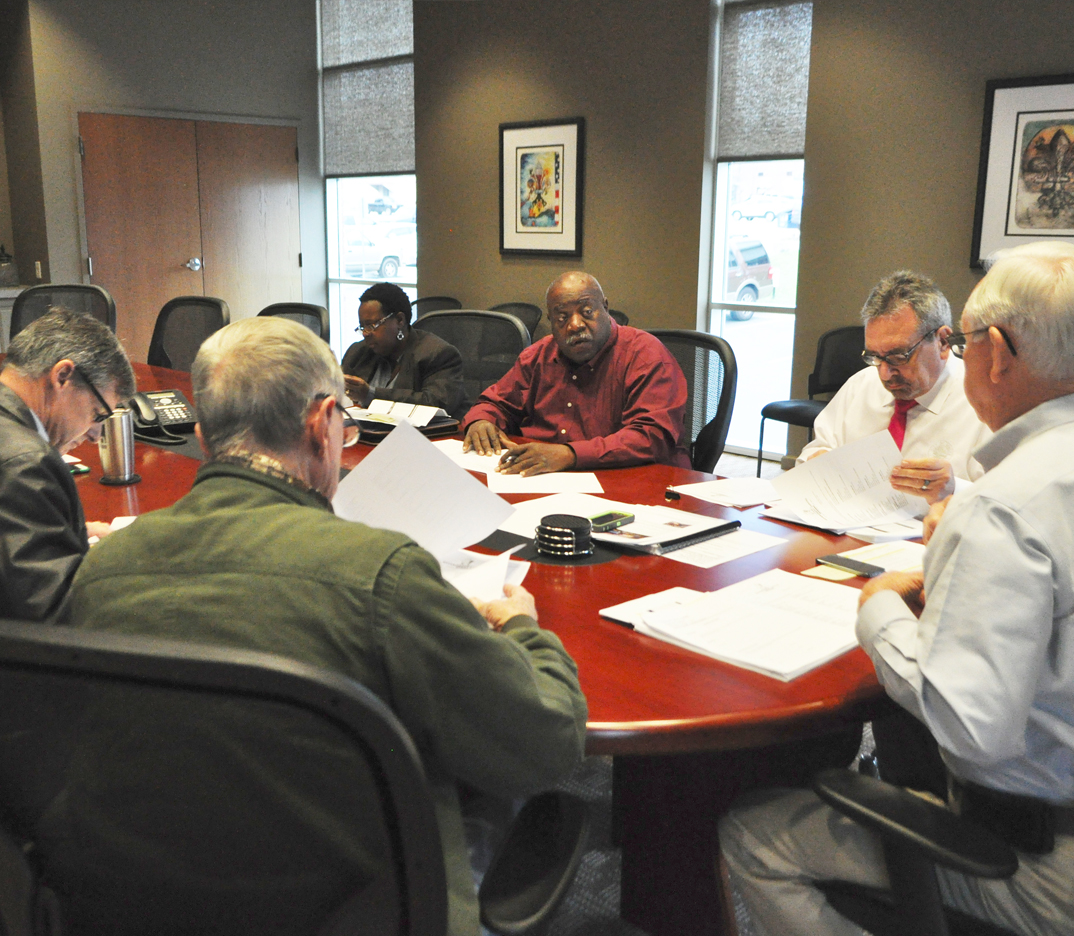The Minden City Council spent time learning about an economic development strategy Tuesday that would not only benefit the city and existing businesses but also provide incentive to prospective businesses.

Council members and Mayor Tommy Davis listen to Minden Economic Development Director James Graham explain the proposed strategy to create Tax Increment Financing districts in Minden. Attorney David Wolf explained to the council what a TIF is and how it works. Michelle Bates/Press-Herald
“The TIF district is a political subdivision that under Louisiana law, you can create,” Wolf told council members. “TIF districts can be created by municipalities and parishes. It doesn’t need to be the whole city; it can be the whole city or it can be as small as one piece of property.”
It is set up similar to a fire district or water district in that it has a governing body and taxing authority; in this case, it would be the Minden City Council. It can be created with or without a vote of the people, depending on if any registered voters live in the district.
James Graham, Minden economic development director, says he wants to set up a 501c3 entity, with a variety of players at the table – seats for the mayor, a council member, a tourism representative, Louisiana Economic Development and the executive director – at the time the districts are created. Through the tax exempt avenue, it could offer a variety of incentives.
The 501c3 would be able to administer the TIF and also handle other economic development projects, including donation of property to the city and grants from foundations that could be acquired. The board would make a recommendation to the council for the use of the TIF based on the project and its needs.
“If there’s a project, and we’re working on a building, the 501c3 and its staff and board would be working intimately with the project,” Graham said. “Therefore, you don’t tie up the city council with the intimacy of the project. That entity could promote that project if that project gets through its due diligence that the 501c3 requires.”
Graham has implemented TIF districts in other areas, and its biggest asset is that it offers strategy flexibility for each district created. In Minden, the TIF districts would focus on commercial properties, developed and undeveloped, leaving neighborhoods and homes untouched where possible, also bypassing the need to bring call for an election to create the district.
A TIF district can be created without a vote of the people if no registered voters live in the district. If registered voters live in the district, it must be taken before the people, Wolf said.
“In terms of Minden, the benefits are many,” Graham said. “It doesn’t rely on government funding. It doesn’t rely on the general fund. The increment must be spent to improve elements within the TIF district, and the results would be jobs, increased property values and increased property tax revenue.”
Council members agreed the idea has merit; however, they voiced concerns about benefits for existing businesses, how it would affect homeowners and whether a TIF district should already be in place or if they should create the district as the needs arise.
District A Councilwoman Fayrine Kennon-Gilbert says she wants to see the TIF put in place, “that way it’s already there.”
Mike Toland, District D, says he’s on board with implementing the TIF as long as it benefits the city’s existing businesses as well as new businesses.
One of the proposed TIF districts is along the Frontage Road along Interstate 20, property that could be more fully developed with more hotels, restaurants and shops.
Mayor Tommy Davis says he wants to see this go through because, for example, they cannot host sports tournaments here due to the lack of hotel space. The current hotels in Minden stay full, he says.
“If the City of Minden invests $50,000 to host a tournament here, the only way we have to get that back is through people spending their money here,” he said. “Where are they going to stay? They’re going to go stay in Bossier or Ruston, and we’re going to spend the money to host a tournament and revenue will go somewhere else.”
More discussion on the issue is set to follow at a date to be determined. Graham will also provide council members with a clear map with proposed TIF districts highlighted to give them a better idea of what will be encompassed in these districts.





2 comments
So the tif would finance new motels because we’re not breaking even on the tournaments we host?
AMEN! Use it downtown too!
Comments are closed.